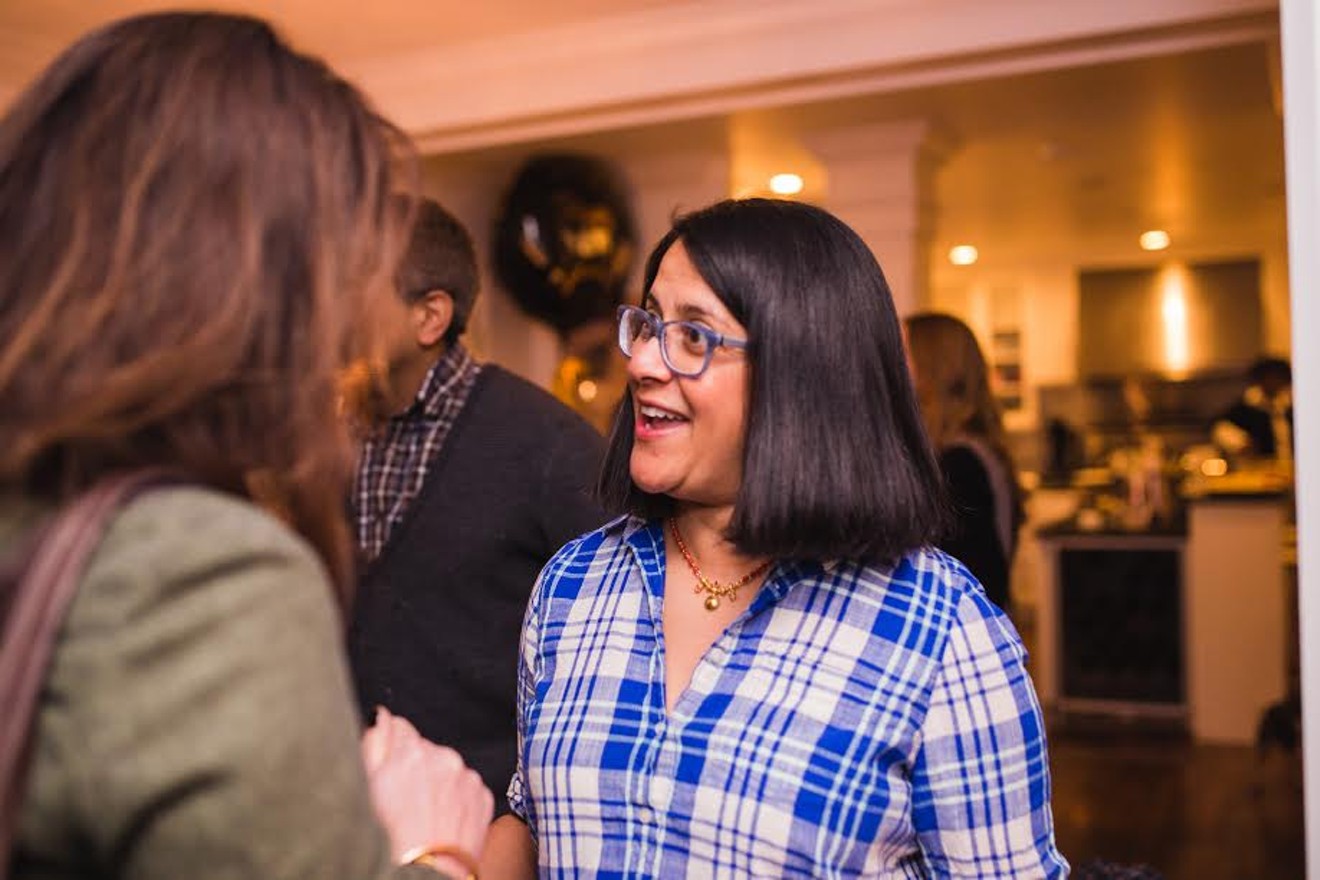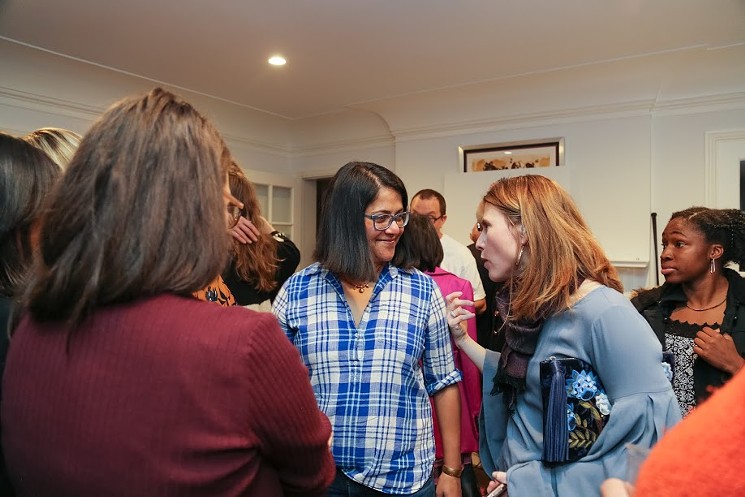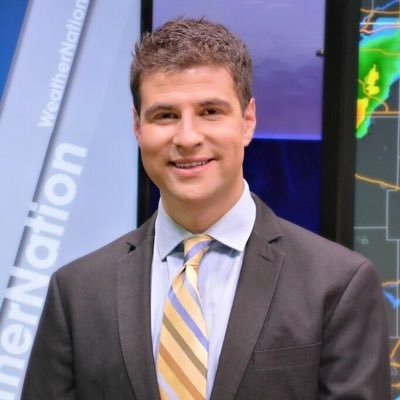Rao's frustration with mainstream Democrats stems from her belief that her passion and long-term support hasn't been adequately received, and that not enough has been done by some in the party to counter increasing levels of racism in America.
Rao is a 43-year-old mother of two who moved to Denver five years ago, and she owns a media publishing company that focuses on putting kids of color in more children's books.
Unseating DeGette, a 22-year congresswoman who won her Democratic primary by nearly 73 points in 2016, is a monumental task, but Rao says she feels compelled to run to offer a contrarian voice to the Democratic establishment that she has come to disagree with.
Westword: Tell us a little bit about yourself and how you got into this position.
Saira Rao: I have been super-active in Democratic politics my whole life. My first vote was cast for Bill Clinton in 1996. I've volunteered for everybody. And just like everybody else, I became incredibly active after the disaster of November 2016. I really sort of dug in and started doing fundraisers and was donating to every single campaign, and kind of along the way I realized that centrist Democrats wanted something from me: namely, money and time. They didn't want to hear about my concerns; as our country has become more xenophobic in the last fourteen months, my concerns have largely been racial.
I grew up in Richmond, Virginia, in the 1970s, and the level of racism that my family has experienced since November 2016 has far surpassed anything that I experienced even in the capital of the old Confederacy. It's been scary. My late mother was called the n-word on Facebook (Rao is Indian-American). My husband was chased down the street and told to go back to his country and called an Arab and a terrorist. Good family friends had a twelve-year-old kid assaulted on the metro in D.C. for being Asian. My kids have been very, very scared. I would voice things like this to party folks, and they just didn't seem to care.
Everything kind of came to a head last fall over a whole bunch of things, but it led me to write an article for the Huffington Post about breaking up with the party over the fact that I felt completely like a pawn as a brown woman. And what ended up happening after that was a deluge of emails, a lot of them saying "Bye, Felicia," a lot of them saying "I'm with you, I'm no longer voting for Democrats," which is a very dangerous thing. And then a bunch of people said, "Why don't you run for office?"
Over Christmas, I really couldn't sleep, and I couldn't figure out what was going on. I realized that my issue with Democrats in very safe seats, who are not using their power and their privilege to advocate for the disenfranchised, is what was really bothering me.
Your campaign seems to be centered on race issues. But what sort of policies would you introduce?
I think we're at a real crisis point in this country when it comes to income inequality. Denver is sort of ground zero for that. There used to be affordable housing, [and now] it's crazy. The housing prices in this city have just risen astronomically, and I know a lot of federal officials say they don't have anything to do with that, and that's not true and that's intellectually dishonest. You learn in kindergarten that the hand bone is connected to this bone and that bone. Local, state and federal policy is all interconnected. What would be great is if we had people in Congress who say, "You know what, I don't know how much I can legislate around this issue, but you know what I'd love to do is recognize this is the real pain point among people black, white, brown, gay, straight; everybody in this city is suffering in that way." Let's put people together at the table and talk about how we can all come to some consensus. It can't be that real estate developers call the shots.
How do you plan to get the word out? What's your campaign strategy?
My campaign strategy is really reaching out to a lot of people who've been traditionally disenfranchised and getting my name out in those communities. Raising a lot of money, which we are in the process of doing. We are doing very well on that front, and hiring a huge ground team to actually get my name out.
How exactly do you beat an established incumbent in DeGette, who's been in power since 1996?
I think some interesting things are happening right now, just in terms of the election. Number one, this is the first year there's an open primary, so independents can vote. A lot of them will likely vote Democratic and will be progressives, and once I get my name out, likely vote for me. We've got a huge, highly watched gubernatorial race, so I think voter turnout is going to be a lot higher. And reaching with this huge field game — reaching people who typically have felt disenfranchised and get them registered to vote, and get them out to vote. That's how we win.
Do you fear that by launching this primary you risk dividing the Democratic Party and playing into Republicans' hands?
Number one, this is 100 percent a safe seat for Democrats. I wouldn't have done this otherwise. Number two, I think I want to re-frame that a little bit. It's not the right way to look at it. It's very obvious that the Republicans are our enemy, if you're going to look at it in this partisan way. But cleaning the Democratic Party and getting in new leadership and putting an A-team into the Democratic Party is equally as important as getting rid of the Republicans, because you can't beat the Republicans without your A-team. I'm not breaking up with the Democratic party; I'm breaking up with the Democratic establishment. They don't speak for me, and they don't speak for a whole lot of people who feel disenfranchised. As a matter of just logistics and practicality, I think Democrats assuming that all Democrats are going to show up for them in the midterms is not going to happen. We saw that black women largely won the election for Democrat Doug Jones (in Alabama's senatorial run-off in December). Let's see how that works out. Let's see how in-tune he is to their needs. I can tell you right now, a lot of progressive people don't feel like the Democratic Party is their party; they really don't. I think we need to have new leadership in there to really galvanize those folks, and really give it to the Republicans.
It's very problematic to have an institution that doesn't have term limits, Congress, and not have open and robust primaries. That's the only way you have choice. The party being wedded to incumbents hasn't worked. It has not worked. So let's try something different, like having open and robust primaries so that people have genuine choice and we can have a discussion of ideas, and people can choose who they feel represents them best instead of just giving them one option year after year, decade after decade. It doesn't make any sense.
A final pitch?The Republicans have used that to make everybody afraid of other brown people and terrorists, and that's why you see south Asian men gunned down.
tweet this
I was actually in India (during the December 2000 Red Fort terrorist attack in Delhi). My cousin and I had just left, we'd been at the Red Fort, and we just left. We were at dinner that night, and the amount of Islamophobia that was being floated around the room was just shocking to me and my American sensibility. And he said to me, wait until Al Qaeda bombs America, and you'll see this there. And I said no way, America's above that.
I was actually at the World Trade Center on September 11. I was at the bottom of it; I was one of the people running up the street. I was doing a law school clinic at the U.S. Attorney's Office on Tuesday mornings that fall. A massively traumatizing experience, but I'm very grateful to have lived through it. I firmly believed that we wouldn't go down that road that I saw in India, and that hasn't happened. Look, we've always had xenophobia and racism and misogyny and etcetera. The Republicans have used that to make everybody afraid of other brown people and terrorists, and that's why you see south Asian men gunned down. That's why I get strip-searched every time I go to the airport, which is not great for me, and it's terrible for my kids to see that. Every single time.
I think what's happened, though, is the Republicans have framed everything by way of fear against others. I think what's happened with Democrats, though, is they've framed everything, by way of fear, against Republicans. And everything is about resistance and resisting Trump. Let's stop talking about Donald Trump. Let's stop reacting to every asinine, hateful thing he says and start talk about solutions about putting an alternate reality rather than fear. It feels very much to me right now [that] we're in this moment where culturally, all we're doing is succumbing to fear on both sides. Progressives like me are actually like, "Let's not do that. Let's stop doing that."
Should we be focusing on Republicans? No, we should be focusing on Americans. We should be focusing on us, and coming up with a positive path forward that works for everyone that is not fear-based.













